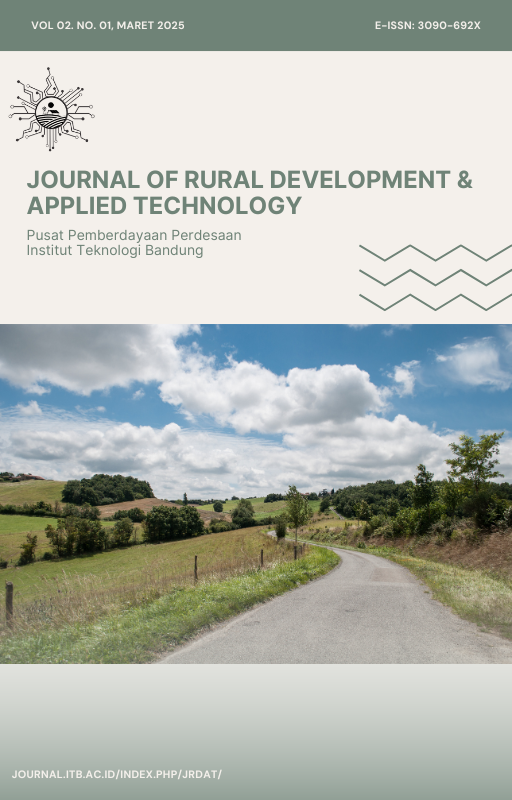IMPLEMENTATION OF SUSTAINABLE FOOD HOUSE AREA MODEL (SFHAM) IN CICADAS? VILLAGE, CIBEUNYING KIDUL SUB-DISTRICT, BANDUNG
DOI:
https://doi.org/10.5614/jrdat.2025.2.1.1Abstract
This community service activity aims to implement the Sustainable Food House Area Model (SFHAM) as an effort to improve food security and community welfare in Cicadas Village, Cibeunying Kidul District, Bandung. The activity stages include site surveys and coordination with relevant parties, socialization of the SFHAM concept, and training in innovative farming techniques such as hydroponics, the Dutch Bucket System (DBS), and the Organic Tower Garden (OTG). The results of the activity demonstrate success in enhancing residents? knowledge and skills in managing their yards as sustainable food sources, as well as their ability to independently produce healthy food. SFHAM has proven to be an effective approach for local food security in urban areas when supported by continuous mentoring and active community participation. Evaluation and monitoring indicate the need for continuous mentoring and adaptation of methods to local conditions to ensure the sustainability of the program. Thus, the implementation of SFHAM is expected to support local food security, improve family economics, and contribute to sustainable environmental management in urban areas.





